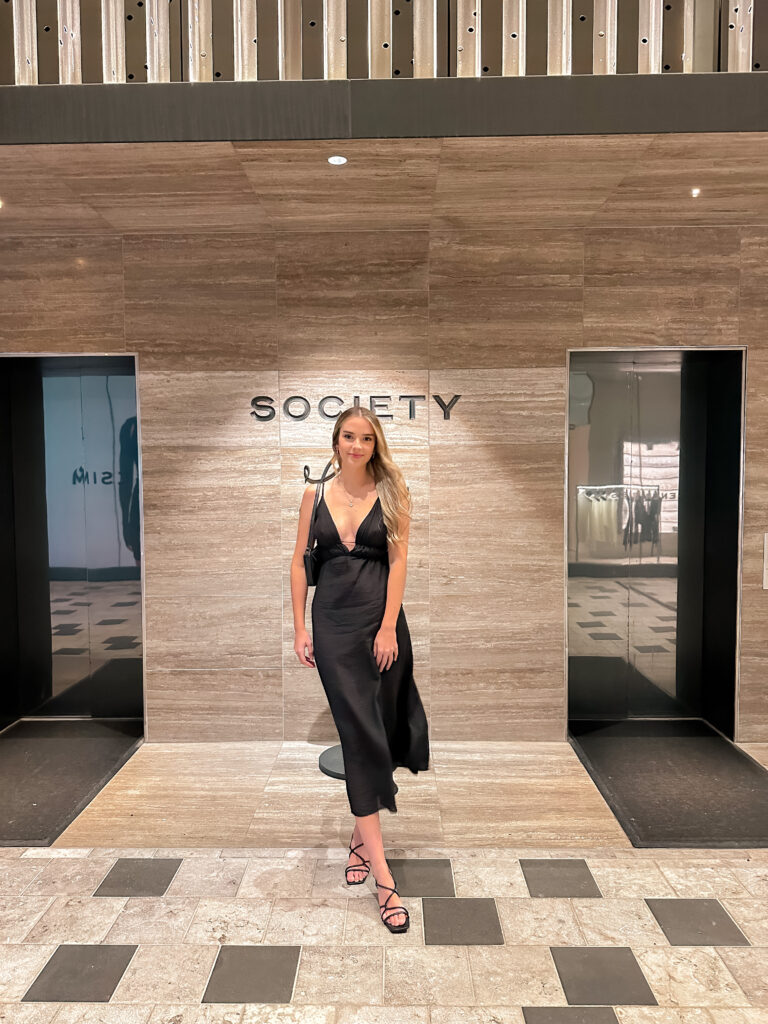When I was 17 and still living in the UK, I had an upset stomach and started experiencing what I now know are symptoms of IBD – including blood in my stool, weight loss and an urgent need to go to the toilet with extreme regularity. I was told I had a stomach bug and that it would pass. Fast forward a couple of months where I wasn’t getting better, and – at the urging of my dad – I managed to get an appointment for a flexible sigmoidoscopy.
I vividly remember – I was lying in my hospital bed. I just came out of the scope, and a lovely nurse spoke to me and gave me like a printout about ulcerative colitis (UC). Then I saw a consultant a couple of weeks later and received the official diagnosis. At that time, I was very confused. I didn’t know what this illness was, or what it meant. I started doing my own research and kind of went from there, but I truly felt like I was the only person who had this condition. I felt very lonely and isolated — it was a lot to take in as a young person. My IBD nurses and close friends were fantastic in helping me get through this, but I think it’s relatively easy when you’re first diagnosed to exclusively focus on your physical wellbeing. As a consequence, I think it can be easy to neglect your mental wellbeing. I would strongly encourage others who are diagnosed to speak to somebody about what they are feeling and going through.


Following the diagnosis, I found social media to be a powerful tool in connecting with other people living with IBD. This was important for me in feeling less alone. I remember following this person on Instagram with ulcerative colitis, and experiencing a feeling of, “wow. Somebody has my illness.” Then, I explored the hashtags, and identified that quite a few people shared my condition. I created my own account – @ibdlottie – to share what I was going through. I have now developed a strong community and support network, and have made really good friends. Some of these relationships exist online, and I’ve met up with people in person due to this connection. Especially following my move from the UK to Australia, this community has been really important.
I’m not currently flaring, but I still have what I call ‘mini flare ups’. I’ll go through two or three days where I feel unwell, before recovering. I find that I do get quite tired and worn out, and I experience cramping and sore joints quite a bit. It can also take me longer to recover from illnesses, and there are certain foods that I can’t eat. I’m 24 now and I was diagnosed when I was 17. As such, it’s difficult for me to remember what my “normal” was. I sometimes get in my head, and am unsure as to whether I’m feeling a certain way because of my UC or not.
From a mental health perspective, talking to others about your experience has been so helpful in reducing feelings of isolation. After moving to Australia at the end of last year, I’ve had people message and say, “I didn’t know if I could travel with IBD, but seeing you do it has made me realise that I can do it.” My UC has also encouraged me to live in the moment, and to live to the fullest, particularly while I’m feeling well. For instance, I’m not sure I would’ve run a half marathon, or moved to Australia, if not for this attitude.
There’ll be good days and bad days, but I know that there’ll be opportunities to do things that challenge and excite me, and I’ll take on that opportunity whenever I can.